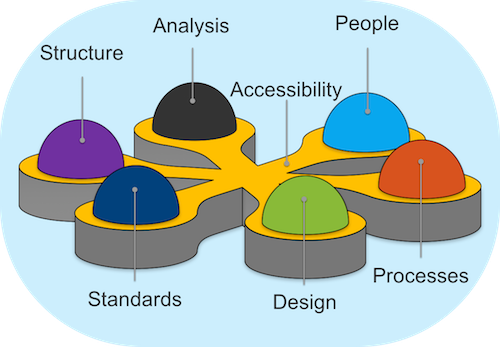In a world of Google and Amazon, we have come to expect information to be organised and available with a simple search and to be able to purchase anything immediately with delivery overnight. And so, when this doesn’t happen we are frustrated.
In our frustration, we conveniently forget the size of budgets and workforces that both Google and Amazon have to enable our reality. And so, we are frustrated with our own organisations when are information is a bit of mess as we still use legacy systems and prioritise other things over improving our information management.
In discussions with people in social organisations, here are 5 of the common frustrations I heard (with a 3-part bonus).

1. I can’t access the data I need/want to (Accessibility): Most people talked about experiences where you know the data or information exists, however they cannot access it for a variety of reasons.
2. Different projects have different datasets, but they don’t “talk” to each other (Structure): This is an increasingly common complaint. This is often an issue between organisations, but unfortunately it is all too common within an organisation. People did mention that they often can find a workaround to this problem, but it is time consuming and highly frustrating in environments where speed is of the essence. In tech speak, this is an issue of data structure.
3. Design skills and thinking would help us present our data in more meaningful ways (Design): Sometimes the information exists and is presented in a way that’s very hard to understand or leaves people asking, “so what?”. One of the diseases of the humanitarian world is the fact that much of the information it does have is presented in static format rather than dynamically, which would allow users to understand it better. Very little information is currently able to automatically generate or update graphs, maps, or infographics.
4. Data that is not analysed is almost useless (Analysis): Reaching information overload is a regular occurrence for many of you. Collecting data is easy. Properly analysing data is hard work and requires a specific skill, which is all too rare. As one person said, this “results in inconsistencies in data and therefore doubts about the veracity of that data, poorer decision making, and poorer outcomes for those we are working for.”
5. Basic Minimum Standards rarely exist (Standards): Basic standards for IM are needed within an organisation for success. This issue is connected closely with data structure and processes. It is important to collect the same minimum required information when registering a beneficiary no matter what type of project you are implementing. The same goes for when we are tracking the activities done to benefit those we are helping. Unfortunately, this does not currently exist.
Bonus: The overlooked 3: People, Processes, and Culture:I’m looking at these three together as they are absolutely critical, yet often overlooked. When we talk about Information Management, often we jump straight to technology – the new app, some software, etc. – the shiny toy as I call it. However, in every single situation I’ve been involved in, at minimum 80-90% of the challenge is to do with people, processes, and organisational culture with the rest being something to do with technology.

0 Comments